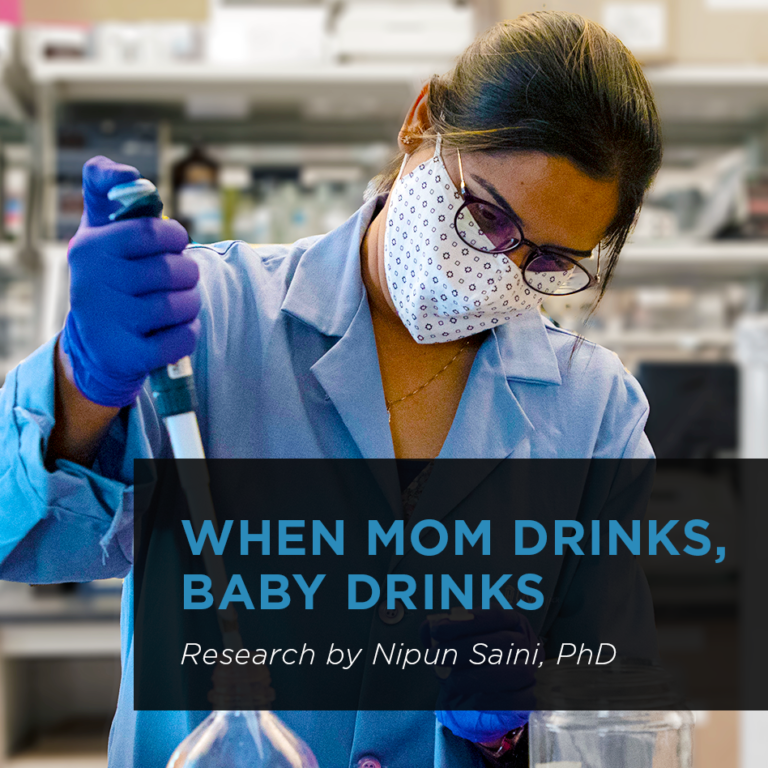It is a hidden truth that 1 in 7 pregnant people in United States reports drinking alcohol in the past 30 days. And about 1 in 20 pregnant people reports binge drinking—defined as 4 or more alcoholic beverages on one occasion—in the past 30 days.
Nipun Saini, PhD, a postdoctoral research associate in the Smith Lab, has spent the last six years helping her team advance understanding of the mechanisms by which dietary components affect prenatal development, particularly how alcohol damages the embryo and fetus, and the environmental genetic factors that heighten alcohol’s toxicity.
We all know how drinking alcohol affects the body: it affects organs, and metabolism—suppressing appetite, causing blood sugar to drop—among many other affects. But what happens when a mother drinks alcohol?
When mothers drink during pregnancy, the alcohol reaches the unborn baby. Because baby has no way to dispose of that alcohol, it keeps floating in the amniotic fluid and causes various degrees of birth defects, stunted growth and memory and cognitive delays. Studies have now shown that, even if there is no visible birth defect or developmental delay in the child, they are still at a risk of having metabolic disorders such as insulin resistance, diabetes, obesity, heart diseases, etc., at the later stages of life.
Various researchers find ways to mitigate these developmental defects after the baby is born.
“But I want to reduce these effects in the womb only,” declares Saini.
Without a doubt, the best way to protect a child within the womb is to cut back on alcohol during pregnancy to minimize some of the adverse outcomes. But some pregnant people continue to drink due to multiple reasons.
A balanced nutritious diet increases the chances of a healthy pregnancy. The consumption of alcohol prevents the absorption of some important nutrients in the mother’s body. Through Saini’s research, she hopes to understand how alcohol interacts with these nutrients in the mother and causes harmful effects in the baby.
In the womb, one of the main sources of energy for baby’s growth is glucose that comes from the mother. Glucose is the simplest form of sugar and is used for growth, organ development and even storing fat, which is used by the baby after birth.
“My ongoing research finds that when you give alcohol to a pregnant mouse, this transfer of glucose from mother to the fetus is reduced. When limited glucose is available, fetus is forced to decide if it needs to survive or have optimal growth,” explains Saini.
This is one of the many ways in which alcohol affects a growing baby. In her future research, Saini wants to target mother’s nutrition and improve this transfer of glucose to the fetus, allowing the adverse effects on the fetus to be minimized.
This article was written from Saini’s Three Minute Nutrition Theory presentation, given in February as part of the NRI’s Appetite for Life series.

